Section 16(4) of the Central Goods and Services Tax Act, 2017 (similar provision in SGST and UTGST Acts) is arguably one of the most dreaded provisions of GST laws which substantially curb the right of a taxpayer so far as his entitlement to ITC is concerned. It seriously hits the basic premise of GST which is based on an uninterrupted flow of credit and abolition of double taxation. It completely goes against the spirit of the statement of objects and reasons appended to The Constitution (One Hundred and Twenty-Second) Amendment Bill, 2014 which clearly states that GST is intended to remove cascading effect of taxes and such intention is fructified or materializes only when there is a seamless flow of credit.
This section restricts entitlement to input tax credit in respect of any invoice or debit note of a particular financial year if the same is not taken on or before the due date of filing of the return for the month of September of the subsequent year or the furnishing of the annual return of the financial year to which the invoice/debit note pertains to, whichever is earlier.
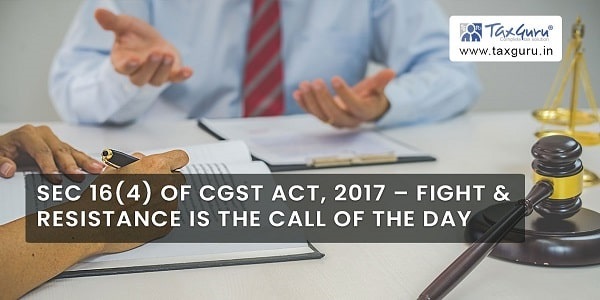
Similar provision in Vat laws only in one State
Most of the state Vat Acts did not have this provision. In fact, apart from Tamilnadu State Vat Act no other Vat Acts had this dreaded provision. Accordingly, this provision is a serious jolt to the registered persons who have been migrated from the erstwhile Vat Acts where they never faced such restriction and find it hard to get in terms with it.
Similar provision in Excise laws
This provision appears to be an offshoot of the excise laws particularly the Central Excise Rules and subsequently the Cenvat credit rules. Time limitation to avail input credit was first introduced through erstwhile Central Excise Rules 1944 on 29th June 1995 by insertion of second proviso to Rule 57G. Rule 57G of the Central Excise Rules provides that the manufacturer can take credit in respect of the inputs received under the duty paying documents. Prior to 29-6-1995 the manufacturer who receives the inputs under the cover of valid duty paying documents had the freedom to take the credit without any limitation of time under Rule 57G. Rule 57G was amended by Notification No. 8/95 – Central Excise (N.T.) dated 25-6-1995 and a proviso was introduced in the rule to the effect that no credit is to be taken after six months from the date of issue of any duty paying documents. Central Excise Rules 1944 was subsequently rescinded.
The Cenvat Credit Rules, 2002 also did not have any such restrictions. Such a restriction was brought w.e.f. 1st September 2014 by an amendment to the Cenvat Credit Rules 2004 through notification no. 21/2014 – Central Excise (NT) dated 11.07.2014.
Similar provision in Service Tax laws
In 2004-05, service tax was also made a part of Cenvat and accordingly the restrictions put in w.e.f. 1st September 2014 by an amendment to the Cenvat Credit Rules 2004 through notification no. 21/2014 – Central Excise (NT) dated 11.07.2014. was also applicable and with effect from 1st March, 2015 the time limit of 6 months was enhanced to 1 year vide notification no. 6/2015 – Central Excise (NT) dated 01.03.2015.
Similar provisions in other countries are too liberal
Australia
The GST Act is Australia is termed as A New Tax System (Goods and Services Tax) Act 1999. Sec 93-5 of the Act deals with input tax credit. As per compilation no. 76 dated 1 April 2018 which included amendments up to Act No. 23, 2018 and was registered on 9 April, 2018, Sec 93-5 provides for the following –
93-5 Time limit on entitlements to input tax credits
(1) You cease to be entitled to an input tax credit for a creditable acquisition to the extent that the input tax credit has not been taken into account, in an assessment of a net amount of yours, during the period of 4 years after the day on which you were required to give to the Commissioner a GST return for the tax period to which the input tax credit would be attributable under subsection 29-10(1) or (2).
Canada
The Federal GST (Goods and Services Tax) was introduced on 1st January 1991. However, all provinces did not agree to merge their provincial sales tax regime with GST. Provinces which did not combine their sales taxes with the GST charges what is known as Harmonized Sales Tax (HST).
Most GST/HST registrants have four years to claim their ITCs. This includes all registrants (other than financial institutions) with sales under $6 million. A two year limit applies to certain financial institutions and some businesses with more than $6 million in sales.
One understands that before GST was implemented in India, various high level teams visited countries where GST was more or less successful in its purpose and implementation. Canada and Australia were countries which were visited by the high level teams and their system was studied. Sadly, the teams do not seem to be inspired by the time limit provided by these countries to claim ITC.
Is 16(4) violative of Article 14 ?
Article 14 of the Constitution guarantee every citizen of India the right to equality before law and proscribes unreasonable discrimination between persons. It declares that the State shall not deny any person equality before the law or the equal protection of the laws within the territory of India.
In the case of Ajay Hasia and others vs. Khalid Mujib Sehravardi & others [AIR 1981 SC 487], the Hon’ble Apex Court held that Article 14 strikes at the arbitrariness because any action that is arbitrary, must necessarily involve negation of equality. Wherever there is arbitrariness in the State action, whether it be of the legislature or of the executive or of an “authority” under Article 12, Article 14 immediately springs into action and strikes down such State action. In fact, the concept of reasonableness and non arbitrariness pervades the entire constitutional scheme and is a golden thread which runs through the whole of the fabric of the Constitution.
In the case of Maneka Gandhi vs. Union of India [AIR 1978 SC 597], the Hon’ble Apex Court observed that Article 14 strikes at arbitrariness in State action and ensures fairness and equality of treatment. The principle of reasonableness, which legally as well as philosophically, is an essential element of equality or non-arbitrariness pervades Article 14 like a brooding omnipresence.
There are enough reasons to argue that section 16(4) violates Article 14 on the ground of arbitrariness.
Article 300A – is ITC a vested right ?
Article 300A states that no person shall be deprived of his property save by authority of law. Chapter IV (containing article 300A) was inserted by the Constitution (Forty-fourth Amendment) Act, 1978 w.e.f. 20-06-1979 and the right to property has been shifted there. It, therefore, no longer remains a fundamental right which is given to us by article 19 of the Constitution of India. By the same amendment sub-clause (f) of clause (1) to article 19 was omitted which before omission read as – (f) to acquire, hold and dispose of property. Thus, w.e.f. 20-06-1979, right to acquire, hold and dispose of property no longer remains a fundamental right. However, the constitutional protection continues in as much as without the authority of law, a person cannot be deprived of his property. It still continues to be a legal or constitutional right. So long as article 300A of the Constitution exists, State cannot interfere and dispossess a person except in accordance with the procedure of law.
Vested right
As per 10th edition of Black’s Law Dictionary, ‘vested right’ means a right that is so completely and definitely belongs to a person that is cannot be impaired or taken away without the person’s consent.
The obvious question that arises here – does ITC become a vested right for the taxpayer as soon as the supply is made to him or the same becomes vested only when he is entitled to it after fulfillment of certain conditions? Or does it remain a concession only and never becomes a vested right? Is section 16(4) a condition to claim ITC or is it simply a procedural provision? There is a convergence of opinion that one ITC is claimed as per section 16(2), it becomes a vested right.
Legal position
It appears from a perusal of section 16 of CGST Act which covers eligibility and conditions for taking input tax credit that a right on input tax is created when a taxpayer fulfills all the conditions specified in section 16(2) which has been drafted as a non-obstante provision. And to use the words of the Hon’ble Apex Court, this right can be earned by the beneficiary only as per scheme of the statute. However, imposition of a time limit through section 16(4) would supersede or override this scheme of the statute since operation of section 16(4) makes the non-obstante section 16(2) meaningless. Section 16(2) has overriding effect on section 16(4) and section 16(2) has been drafted in a manner which shows clear legislative intent that it is not subject to section 16(4).
Section 16(1) and section 16(4) both use the words ‘entitled to take credit whereas section 16(2) uses the word ‘entitled to credit’. Entitlement to a particular right after fulfilling the prescribed and specified conditions results into a right. ‘Taking’ or availing or utilising that right through procedural formalities of furnishing a return by the person who is entitled to that right is a matter of his choice. The right of entitlement to input tax credit provided through section 16(2) is supreme and sacrosanct in the sense that section 16(2) overrides other sub-sections of section 16 and does not make the entitlement subject to any other sub-sections particularly sub-section (4). Thus entitlement under section 16(2) does not have a time limit and gives a right.
A reading of section 16(4) vis-a-vis section 16(1), which can be said to be the operative provision, reveals two issues. First, section 16(1) has not mentioned any ‘time limit’ or ‘time element’ in the section. Nowhere does it mention phrases like ‘subject to time limit’ or ‘within such time limit’. Reference for the same can be drawn to the decision of the Apex Court in the case of Sales Tax Officer, Ponkunnam and another vs. K. I. Abraham [AIR (1967) SC 1823]. Moreover, there is no visible linkage of this sub-section with sub-section (4) also. Nowhere does it mention ‘subject to sub-section (4)’ or any such words. Sub-section (1) has left section (4) to be standalone and forceful creation of a relation between the two is stretched interpretation. Similarly, based on the provisions of a non-obstante sub-section (2), entitlement of input tax credit and getting a vested right there on after having fulfilled all the conditions mentioned therein is also not subject to operations of other sub-sections particularly sub-section (4). Accordingly, where there is an entitlement under sub-section (2) and such entitlement has been duly earned and converted into a vested right after fulfillment of the required conditions, the same cannot be restricted putting a forcible time limit as the law has not made such entitlement and subsequent right subject to provisions of some other sub-sections particularly sub-section (4). The way provisions of sub-sections (1), (2) and (4) have been drafted, encroachment of provisions of sub-section (4) into an otherwise valid and legal entitlement of ITC under the provisions of a non-obstante sub-section (2) should be bad in law as sub-section (4) cannot limit the scope of sub-section (2). The final words therefore can be put in this way that section 16(4) does not prevail over section 16(2) and sub-section 16(2) is not subject to sub-section 16(4).
Judicial pronouncement
In the case of Eicher Motors Limited and another vs. Union of India and others the Court observed that Modvat credit is in the nature of a facility of credit which is as good as tax paid till tax is adjusted on future goods. It was further observed that the right to the credit has become absolute at any rate when the input is used in the manufacture of the final product. The Court said that a credit under the MODVAT scheme was “as good as tax paid”.
In the case of Siddharth Enterprise vs. the Nodal Officer [Special Civil Application No. 5758 of 2019], Hon’ble Gujarat High Court in the matter of transitional credit held that the liability to pay GST on sale of stock carried forward from the previous tax regime without corresponding input tax credit would lead to double taxation on the same subject matter and, therefore, it is arbitrary and irrational. CENVAT credit earned under the erstwhile Central Excise Law is the property of the writ-applicants and it cannot be appropriated for merely failing to file a declaration in the absence of Law in this respect. The Hon’ble Court is very clear here in two aspects – a) Cenvat credit earned under the erstwhile Central Excise Law is a ‘property’ and right to it is a Constitutional right and b) double taxation on same subject matter is arbitrary and irrational.
In the case of Kirloskar Electric Co. Ltd. vs. State of Karnataka and another [W.P. Nos. 58917-58928/2016], the Hon’ble Karnataka High Court held that claim of credit of input tax is indefeasible as was the case of CENVAT under Excise law and such credit of ITC under VAT law which is equivalent to tax paid in the chain of sales of the same goods, cannot be denied on the anvil of machinery provisions or even provisions relating to time frame. The machinery provisions cannot defeat the substantive claims of input tax credit allowable under the Act. The Revenue is entitled only to verify that the Sale Invoices are genuine and valid and such ITC claim is not duplicate, fictitious or bogus.
Doctrine of ‘legitimate expectation’
While pronouncing the judgement in the case of Adfert Technologies (P) Ltd. vs. Union of India and others, the Hon’ble Court had mentioned about the doctrine of ‘legitimate expectation’ which states that a person may have a reasonable expectation of being treated in a certain way by administrative authorities owing to some consistent practice in the past or an express promise made by the authority. It is not a legal right. It is an expectation of a benefit, relief or remedy that may ordinarily flow from a promise or established practice.
When Vat was introduced, removal of cascading effect, facilitating interrupted flow of credit and abolition of double taxation were not the decisive factors. Stakeholders were aware that with parallel functioning of Cenvat, State Vat, CST and many other taxing statutes with no cross adjustment of taxes, these imperfections will remain and some of the taxes would form part of the cost. However, it is an established fact that GST in India was introduced mainly to achieve a continuous flow of ITC. Domain experts and Governments emphasized time and again that introduction of GST would bring an end to existing imperfections in ITC. Eminent Economists, indirect taxation experts, NCAER, Task force on GST, empowered group of State Finance Ministers and finally the Statement of Objects and Reasons accompanying The Constitution (One Hundred and Twenty-Second) Amendment Bill, 2014 had a unanimous convergence of opinion that GST is being introduced to remove the cascading effect of taxes.
With this background, nobody had any doubts why GST was being brought. Had seamless flow of ITC not been visualized as the backbone of GST, the purpose of GST would have been lost and there was no necessity to bring in GST. Accordingly, ITC being a ‘legitimate expectation’ under the circumstances was more of a ‘deemed entitlement’ even before the statute was created because necessity of a free flow of the same on a pan India basis covering both goods and services resulted in the birth of GST.
Legislation’s right to put a time limit vis-a-vis disregard to core provision of GST and resultant taxpayers’ distress
Often it is argued that the legislature has a right to put a time limit on the availment of the input tax credit. There is no denying the fact that legislation have unlimited powers so far as fiscal laws are concerned. They can even put 50% tax on motor cars saying that in a developed country like India which is affected by pollution and emission, fossil fuels should be judiciously used therefore motor car purchases should be discouraged putting a higher tax rate on the same. Prima facie does it hurt any of our fundamental rights provided under Article 19? Seemingly no. Does it mean the legislation should go ahead with this idea giving a damn to economic principles?
Similarly the legislation does have a right to put a time cap on the availment of ITC. Does it necessarily mean that it would have to be implemented at the cost of the little comfort that the small taxpayers have? There could be 50 genuine reasons for which an otherwise compliant taxpayer would not be able to avail the credit of input tax within the time limit. A medical emergency could be one of the main reasons. There could be unforeseen personal tragedy. The financial position of the business may not be healthy. In such trying circumstances, the taxpayers, particularly the small and medium ones need hand-holding. This provision could be therefore, made flexible for those taxpayers whose bona fides are not doubtful and who are otherwise compliant.
Insertion of time limit in section 16(4) appears to be an afterthought
Another pertinent point that comes to mind is whether the same is applicable even if the original return is filed belatedly. As the GST laws do not have any provision and scope for filing a revised return, taxpayers are extremely cautious to file the monthly return for March and may like to wait for a longer time to reconcile the entries and ensure that there is no unnecessary mismatch between the GST returns and the financial records. This exercise is generally taken when the financial audit goes on. They even pay huge late fees to delay the filing of such return and such late fees are paid on subsequent returns also as GST laws does not permit filing of month return in Form 3B if the return for earlier month has not been filed. Allowing a taxpayer to file returns with payment of late fees and then disallow him the ITC because the return was filed belatedly is punishing them twice for a single fault. Moreover, with the payment of late fees u/s 47 as well as payment of interest u/s 50, the treasury has been suitably compensated for the postponement of the tax. Payment of late fees and interest are already there as deterrent for the taxpayers forcing them to be disciplined, punishing them with double payment of tax through section 16(4) is nothing but arbitrary and capricious.
However, it appears that the Model GST laws (MGL) were aware of this. Section 16(15) of the Model GST Laws appeared as under –
A taxable person shall not be entitled to take input tax credit in respect of any invoice for supply of goods and/or services, after the filing of the return under section 27 for the month of September following the end of financial year to which such invoice pertains or filing of the relevant annual return, whichever is earlier.
As would be evident from above, MGL fixed the time limit as the actual date of filing of the return of September of the following year and not the due date filing of September return. The lawmakers might have thought that late fees should act a deterrent for filing of belated return and once a return is filed by payment of late fees it becomes a regularized return and there is no point in penalizing a taxpayer twice by putting a time cap on the availment of ITC.
Practical problems in claiming ITC within the time limit
As per section 31, a registered person can issue a tax invoice before removal of goods if that involves movement of goods. First proviso to Section 16(2) states that if goods against an invoice are received in lots or installments, the registered person shall be entitled to take credit upon receipt of last lot or installment.
Let us assume a case where the invoice was raised on 28th March 2020 and the first installment of goods was sent. Because of unforeseen reasons and let us say, because of Covid-19 the last installment was received by the buyer on 26th October 2020. Other conditions being fulfilled, the buyer is entitled to the credit on 26th October 2020. Does the law contradicts itself and say that this input credit is not eligible since the credit has not been taken within the time limit prescribed by section 16(4)?
The economic angle
The impact of taxation laws is far fetched. Taxation laws are not merely a set of sections, sub-sections, clauses, rules and sub-rules. It is not about some conditions, restrictions and impractical procedures. It probably would not be an overstatement if it is said that taxation laws are one of the vision documents of economic prosperity of a country and are one of the pillars of the economy. Taxation laws should be equitable and of course, it should not be violative of constitutional rights of the citizens. A taxation law is not a good law if it proves to be burdensome on the common citizen, if it stifles economic activity, if it creates roadblocks in ease of doing business. A law, particularly one which guides the economy of a country to some extent and which claims to be a big reform, should not be measured only on the criteria whether some provisions of it would stand the legal scrutiny but on equally important criteria whether it is contributing to the ease of doing business, to the growth of the country and whether it is causing undue hardship on small taxpayers. Nobody denies the fact that a law needs to be complied but the same should necessarily be questioned at appropriate forums if it is unnecessarily harsh, burdensome, against common sense, difficult to comply and curtails rights provided under the constitution.
Section 16(4) may or may not pass the legal scrutiny but as of now one thing can definitely be pronounced in the court of common people of this country that its negative impact on small and medium businesses is far reaching. It has all the potential to destroy a lot of them with huge unpalatable effect on the economy. GST was visualized, planned, drafted and implemented with a promise of continuous chain of set-off and free flow of credit. Legal merits or demerits of Sec 16(4) notwithstanding, the very existence of section 16(4) are a betrayal of that promise.
System glitches
The extent of system glitches that have made the taxpayer suffer is unprecedented. Most of the times, before every due date of furnishing of return, the portal had behaved erratically. Precious times were lost by the taxpayers in their never ending effort to furnish returns.
In a report by Business Today published on 7th July, 2018, it was stated that FICCI conducted a survey of enterprises on completion of one year of GST and their experience post-GST implementation. According to the survey, 59 per cent of the respondents mentioned that they were not satisfied with the capability of the GSTN portal. In fact, 96 per cent respondents felt that improvements were required in the working of the portal. Respondents of the survey pointed out issues with the robustness and volume handling capacity of the GST Portal. Problems like delayed reflection of updated data as well as payments, absence of effective mechanism to resolve issues, inability to make corrections after submission of returns in case of errors were highlighted.
In addition, there are instances which are proof enough to conclusively say that GSTN did not live up to the expectations at all. One of them is the then Finance Secretary Mr. Hashmukh Adhia speaking at a session on ‘One Year Journey of GST’ organised by FICCI where he admitted that the technology failed to have a smooth transition from the earlier indirect tax regime to the present GST regime.
In the case of Tvl. Mehar Tex vs. The Commissioner of CGST and Central Excise [W.P. (MD) No. 22996 of 2019], the Madurai Bench of the Hon’ble Madras High Court while hearing a case about denial of refund because of technical glitches held that if due to error on the part of any software in GSTN, this had occurred obviously, the petitioner cannot be expected to produce proof for the same. In any event, the petitioner had submitted the refund applications manually also. If the petitioner was otherwise eligible to refund, on the ground of technical glitches and error having occurred due to auto-population, the petitioner ought not to be denied relief. Nothing can be more unfair.
The above judgement proves that there were indeed technical glitches in the GSTN and taxpayer had to even approach the High Court for justice.
It is no rocket science to understand that when the IT backbone of the GST system does not work to the optimum, there will be delay and consequent pendency. It is not possible for taxpayer to keep on engaging perennially with an unresponsive portal just to furnish a return. Business is more important for them. As a result, it is no wonder that there would be missed deadlines not because of the fault of the taxpayers but because of an inadequate IT infrastructure. Such system glitches forced the government to extend the due date of section 16(4) by a removal of difficulty order for the year 2017-18. However, despite no substantial improvement in the functioning of the GST portal in subsequent years, due date under section 16(4) for the financial year was not extended for 2018-19. In fact, the portal did not function properly near to the period of due date of section 16(4) for 2018-19 i.e. due date of filing of GSTR-3B of September 2019.
All the above goes to prove that on several counts, section 16(4) of the CGST Act, 2017 is one of the most unwanted provisions in the GST laws because it is arbitrary, it kills the essence of GST and is a betrayal of the legitimate expectations. The sooner all the stakeholders adversely affected by it fight it tooth and nail and ensure it is struck down, the better.





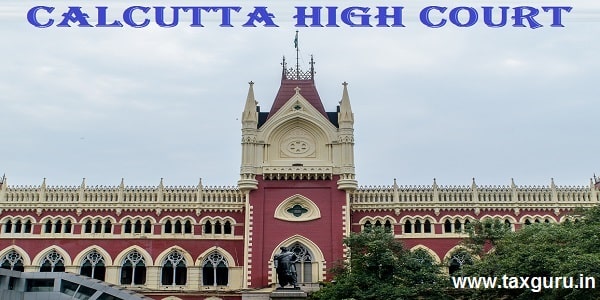

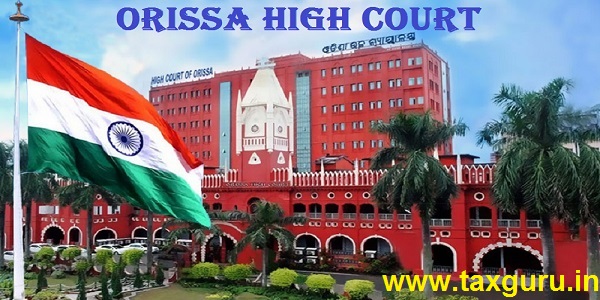

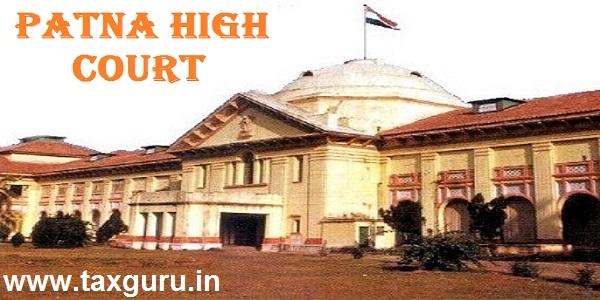

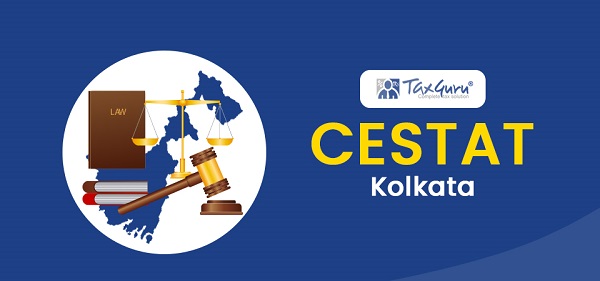




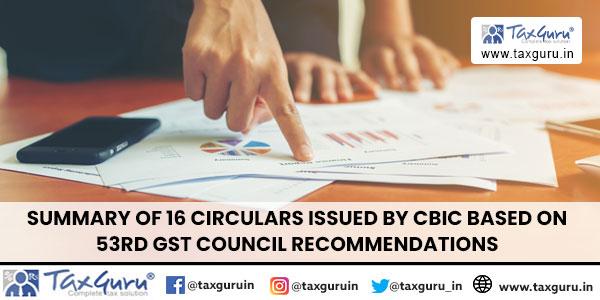
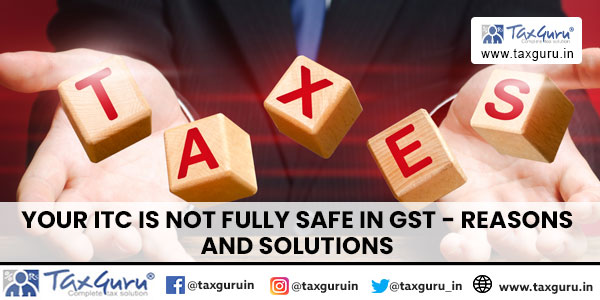
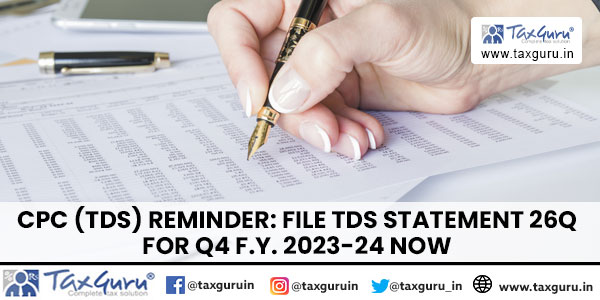
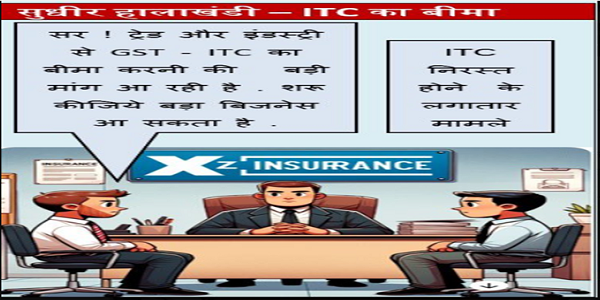
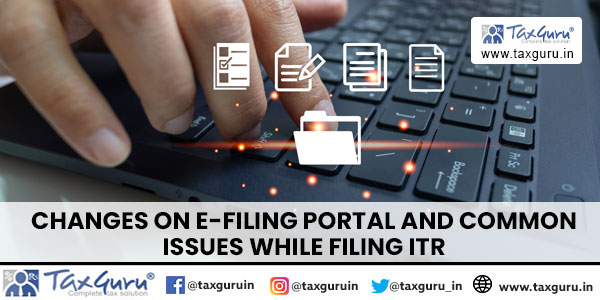
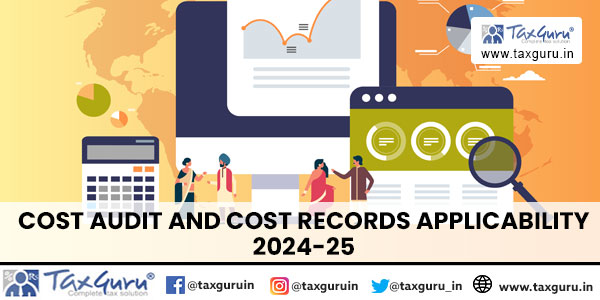









Any progress on this issue. Any one doing something like crowdfunding or lobbying for its amendment to avoid genuine hardships to taxpayers?
In some cases disallowing input credit due to supplier filed their return belatedly and recovering itc with interest from the receiver of goods/services leads collection of gst with interest from both buyer n seller leads duplication. Section 17 (4) needs to be amended suitably. Also there is no protection to the receiver who pays supplier including gst n supplier default in filing their return.
Very good article Mr. Majumdar
ITC should never be denied if it is genuine and appears to be genuine . Time limit for this genuine ITC is unconstitutional and should be declared ultra vires and against the spirit to make people easy with payment of taxes ..